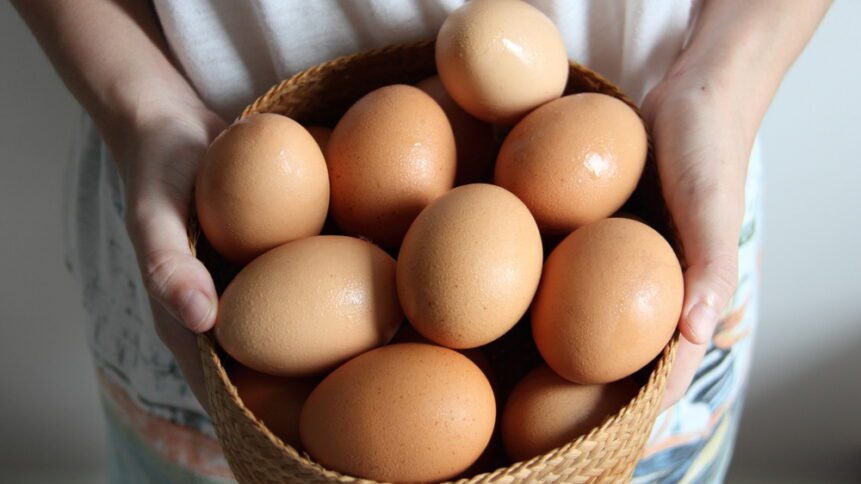
You’ve probably heard the phrase “keep your eyes on your own paper.” I think my mom said something similar when I was in school: “Don’t look around at what the other kids are doing. Focus on your own work!”
Lately, I’ve been thinking a lot about this lesson, as it relates to the infertility community.
There are so many wonderful places online—Facebook support groups, Instagram #ttc accounts, Zoom webinars, message boards—to obtain information and share stories, and thank goodness! But, I’ve also found myself going down a serious jealousy spiral whenever I compare my journey with a fellow #ttc sister.
Here are the real, uncomfortable thoughts I try hard to push out of my mind:
Wow, she’s so lucky. She got 28 eggs from her first retrieval.
It’s so unfair; her fresh transfer worked so quickly and I have to wait to do a frozen transfer.
Well, she didn’t have to spend as much money as I did.
How is she disappointed about her results? Doesn’t she know those results would be my best-case scenario?
Jealousy is hard. I’m normally pretty good about not playing the comparison game, but, when it comes to infertility, it’s different. I think it’s because wanting to have a baby is such a fundamental human desire. The fact that I have very little control over this makes me feel powerless, and often powerlessness creates fear.
I love this quote from the author and speaker Brené Brown:
“If there’s one thing I’ve learned over the past decade, it’s that fear and scarcity immediately trigger comparison, and even pain and hurt are not immune to being assessed and ranked.”
I was fearful. And—if I’m honest—I worried that there wasn’t enough luck in the trying to conceive world to go around. Enter my new best friend—comparison!
I was disappointed that even within the infertility community—a place we all get to through our shared struggles—my body was still not measuring up and ‘failing’ me. I was very bitter for longer than was healthy.
Making matters worse, I have Diminished Ovarian Reserve (DOR), which means the quality and quantity of my eggs declined sooner than expected for my age. Women diagnosed with DOR typically have a lower response to stimulating medications used in IVF compared to women their age whose ovarian reserve is “normal.” So, they usually don’t develop as many follicles from which eggs can be retrieved and have lower numbers/chances for success.
When we began our first IVF cycle in May of this year, I knew (rationally) that I couldn’t compare the number of follicles I had or the number of eggs we retrieved to another woman who doesn’t have diminished ovarian reserve.
But, in reality, of course I was doing this! During my scans leading up to retrieval, I consistently had a poor response to the drugs. In the end, we only ended up retrieving three eggs. A “good” result would be at least ten eggs, and hopefully as many as 20 or 25.
In the end, we had zero normal, viable embryos.
At first, I rationalized my behavior by telling myself, “Well, it’s not like I’m comparing myself to women who can get pregnant naturally. I’m comparing myself to other women who also need IVF to conceive.”
I was disappointed that even within the infertility community—a place we all get to through our shared struggles—my body was still not measuring up and “failing” me. I was very bitter for longer than was healthy.
One day, I read a quote on Instagram: “Her miracle is not your loss” (Lauren Bourne), and something clicked. When I saw photos of embryos to be transferred or a #ttc friend’s pregnancy announcement, I realized it wasn’t that I wanted her baby, I wanted our baby.
I had to tell myself two things:
- There isn’t a limit on miracles. One can happen for me, too.
- Setting boundaries for what I can and can’t handle is healthy
First, I let myself grieve the loss of our failed IVF cycle. Then, when we chose to do a second retrieval, I vowed to stop the comparison game for my mental and physical health. I unfollowed social media accounts, even infertility ones, that were too triggering for me. I stopped asking other infertility sisters for exact retrieval or blast numbers and asked more generally about how they were doing.
I got better at celebrating other women’s wins along the way, though it took a while.
I vowed to stop the comparison game for my mental and physical health. I unfollowed social media accounts, even infertility ones, that were too triggering for me. I stopped asking other infertility sisters for exact retrieval or blast numbers and asked more generally about how they were doing.
For our next IVF cycle, I’m going to try to stop the constant comparison and do my best to keep my eyes on my own paper. (Thanks, Mom.)
This, of course, is a work in progress; but I am trying to remember that everyone’s struggle is different, there is no “right” time or way to get pregnant, and my journey isn’t affected by anyone else’s. And, maybe if I’m lucky, one day I’ll be able to share this life lesson when I’m a mom.
Contributor
Jenna Bennett Williams
Jenna Bennett Williams is a 37 year old marketing professional in Minneapolis. She loves hanging out with her husband, dog, and cat and is obsessed with coffee, yoga, and ice cream. She hates needles, but is gradually getting over her phobia as she and her husband continue their journey to building a family.

Listen to stories, share your own, and get feedback from the community.


















